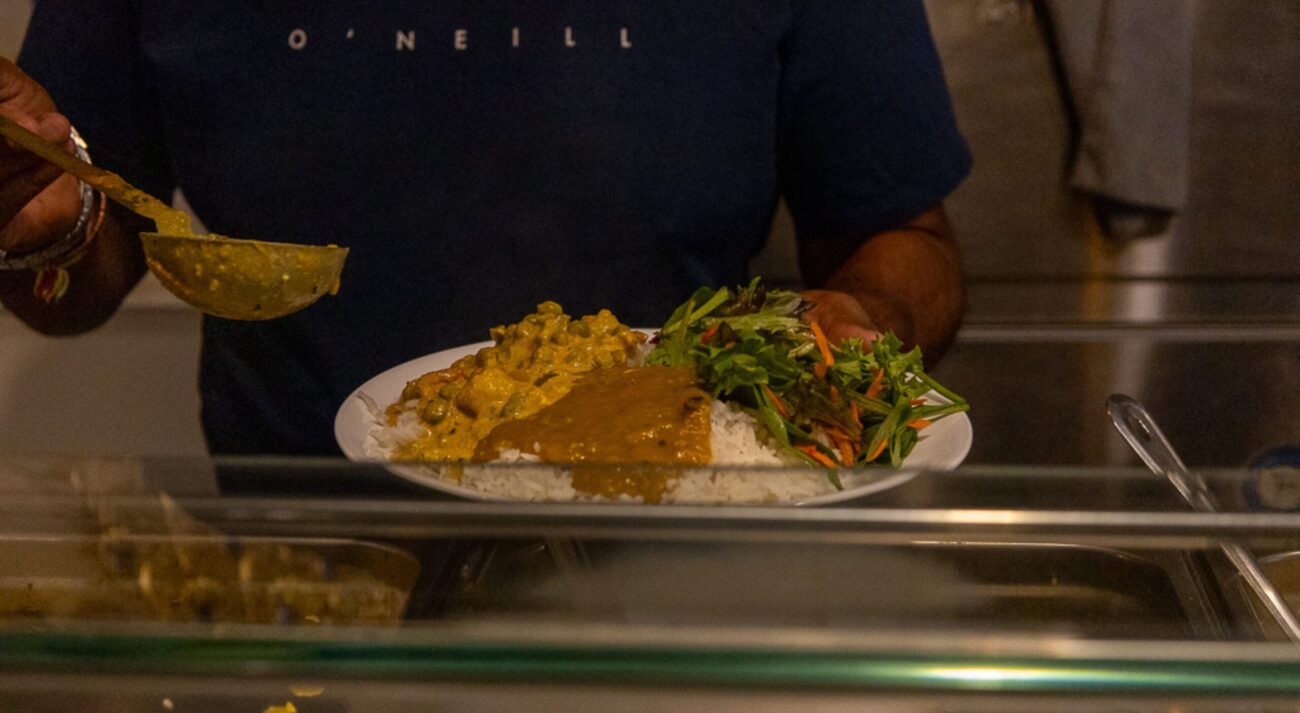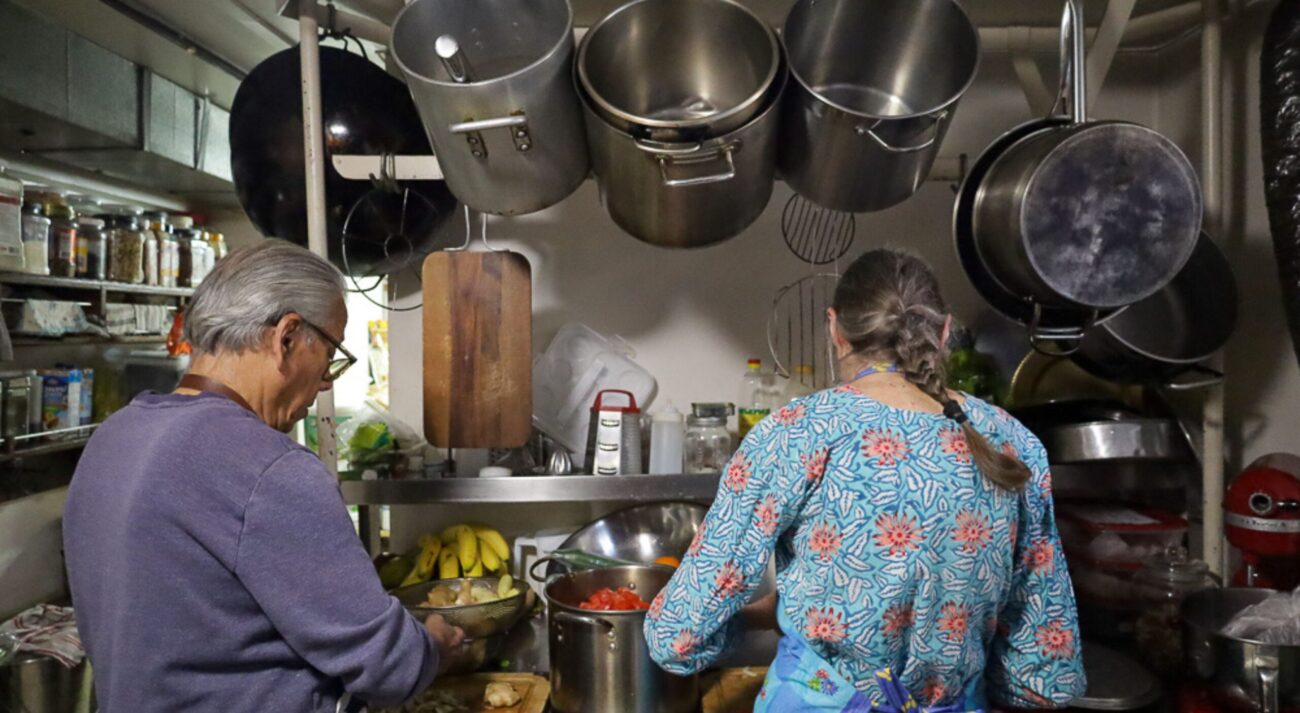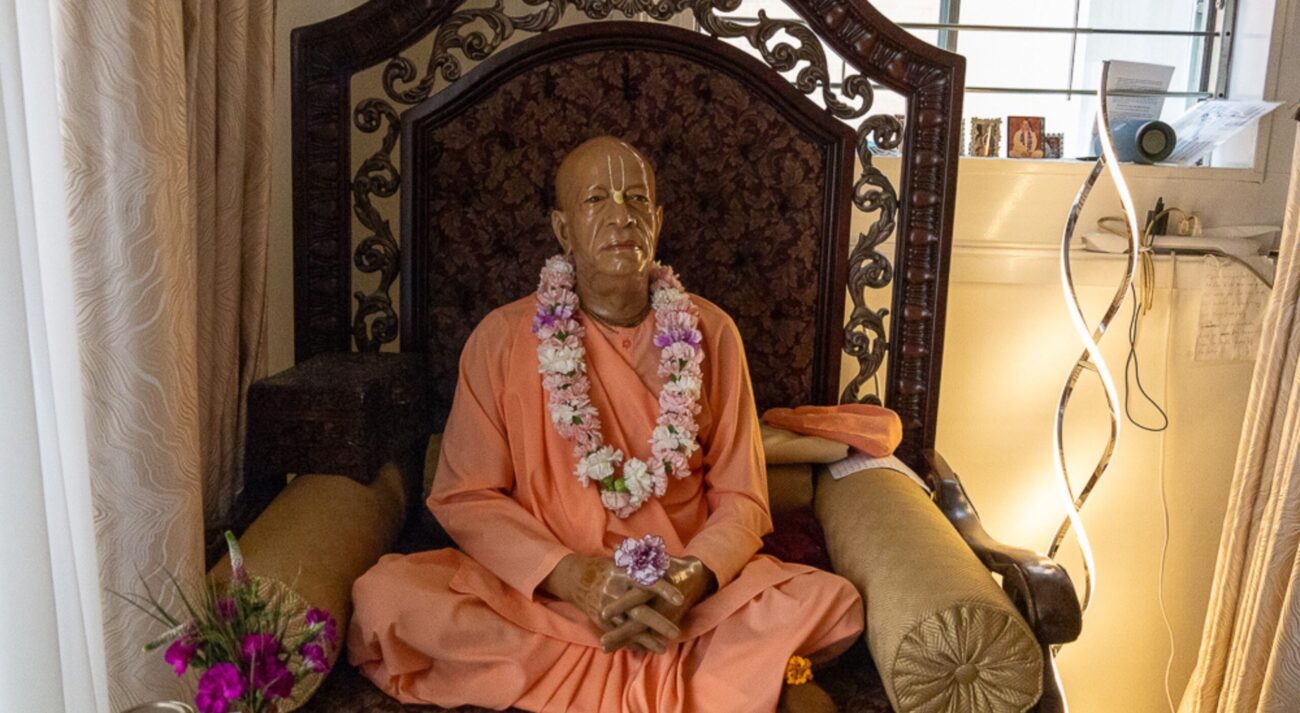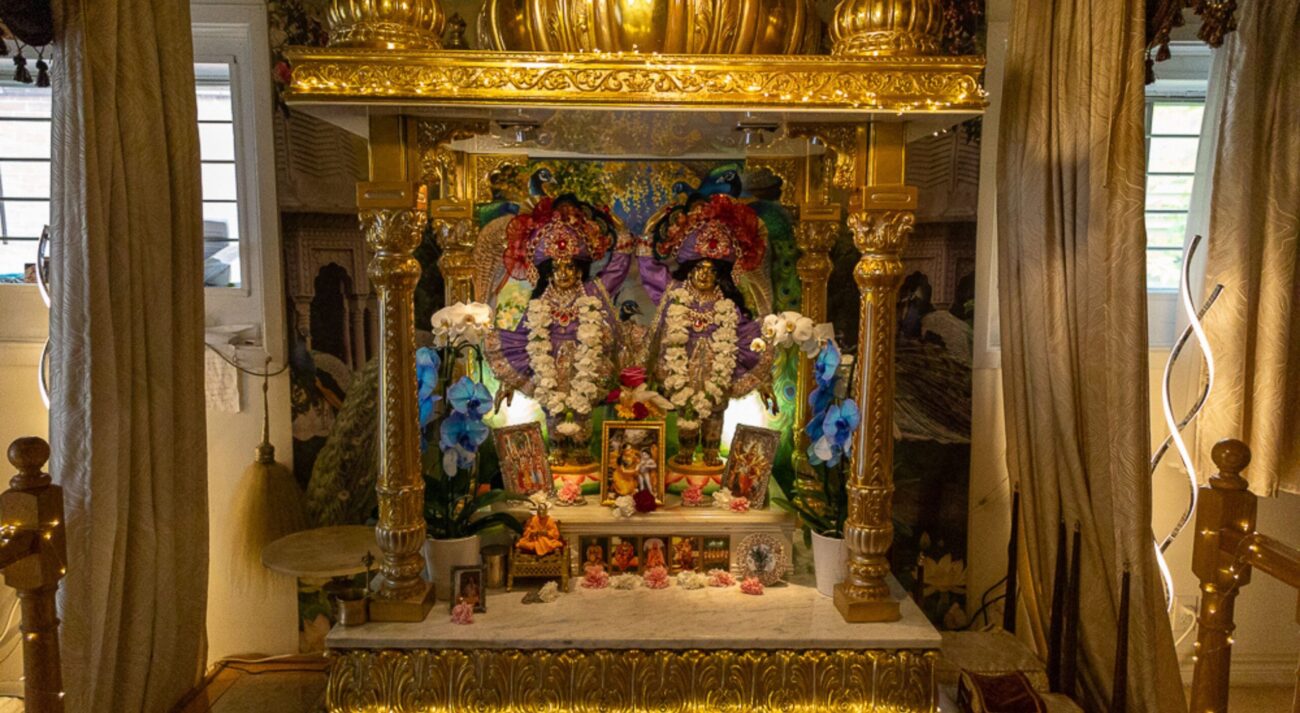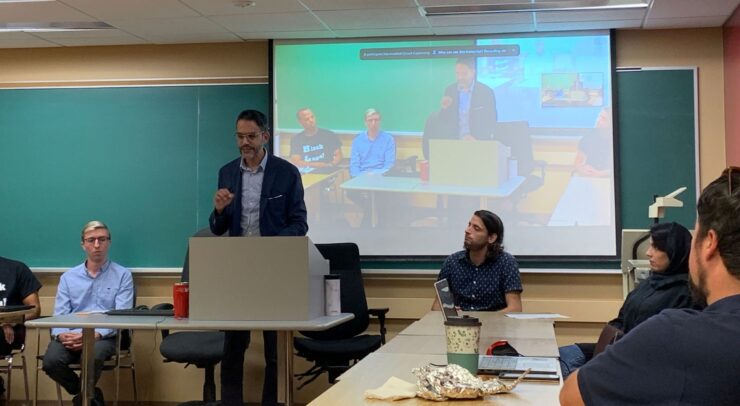What is the little restaurant on Somerset St East?
“Whatever you do, whatever you eat, whatever you offer or give away, and whatever austerities you perform – do that, O son of Kuntī, as an offering to Me”(Bhagavad Gita, Chapter 9, Verse 27).
A lotus symbol overlooks the corner of Somerset Street East and Henderson Avenue. Hidden in the nook of an apartment building where the wall panels connect to the roof, the symbol is the logo of ISKCON, the International Society for Krishna Consciousness. A few steps down from the intersection, there is an unsuspecting building that, for the last 43 years, has earned its place as an Ottawa institution.
Govinda’s is Ottawa’s oldest and longest-standing purely vegetarian restaurant. Opened in 1981, it is the affiliated restaurant of the ISKCON temple, which shares the same building. From Oct. 21–25, the restaurant took part in a larger ISKCON initiative called “Feed the World Week” alongside its counterparts worldwide. The goal of the initiative is to feed millions of people around the world completely free of charge.
Restaurant manager Mandala McAllister expounded, “I know some of the other centres don’t do it in Canada, maybe they just haven’t got that push. But, yeah, we’ve been kind of carrying on the torch for many years, and we’re going to keep it up. It’s kind of one of our main initiatives that’s awesome, especially since we’re centrally located to [the U of O], that students just love it, you know, they’re like, ‘yeah, free food!’”
McAllister took over the restaurant from a man named Shankar Prabhu, who ran it for over 30 years. Since its inception, the restaurant’s mission has been to provide affordable, home-cooked, nourishing food to anyone who walks in the door. It is an embodiment of the values preached by ISKCON — sometimes referred to as the Hare Krishna movement — which started in New York City by Indian guru, His Divine Grace A. C. Bhaktivedanta Swami Prabhupāda in 1966.
ISKCON’s messages of unity and love spread rapidly at the time of civil unrest in the West, resonating with the youth. According to the ISKCON website, the movement “belongs to the Gaudiya-Vaishnava sampradāya, a monotheistic tradition within the Vedic or Hindu culture.” Its teachings centre around bhakti-yoga, a spiritual practice in which all human actions are dedicated to God, or in this case, Krishna.
ISKCON makes it clear that they do not see a separation between the gods of any of the world’s religions. The movement follows the teaching of the Bhagavad Gita, an ancient Hindu dialogue between Lord Krishna and Prince Arjuna at the onset of the Kurukshetra War, as part of the Epic Mahabharata.
“The hypothesis of the Bhagavad Gita is that you’re a conscious, spiritual being,” said McAllister. “You’re not the body. The body is temporary, it’s ever-changing, but you’re a soul. And ultimately, they say that’s a hypothesis. Then the experiment is you start to experiment with consciousness through yoga, meditation, and therefore you get the result to be able to perceive the self.”
The Bhagavad Gita also outlines the basis of Govinda’s ideology when it comes to cooking food. “Our motto is kind of like cooking with consciousness,” says McAllister. “Let’s just give an example. Say, if you go to McDonald’s and eat a dirty burger, you’re going to feel like, ‘Okay, I’m going to eat it.’ But the people flipping the burgers there [are] like, ‘Man, I hate my job. I hate this. Why am I here doing this?’ And you know, that’s kind of going into the food, then you feel [it] afterward, you kind of feel like a gut rot, [and] your mind is kind of affected in a way. But let’s say you go home for Thanksgiving, Christmas, or Diwali, whatever it be, and your grandmother cooks a nice feast, cooked with so much care, so much love, attention, then that’s going to seep into the food. It’s going to make you feel much better. It’s going to uplift you. And similarly, here, we’ll do that same thing.”
McAllister claims cooking is a devotional activity in its nature, and at Govinda’s, this devotion is directed towards Krishna, who he describes as “another name for god.” He stresses that the food at the restaurant is made with the utmost care and attention as a loving offering to Krishna.
Contrary to the stereotype about Indian food being too spicy, Govinda’s follows a Sattvik diet, which places an emphasis on freshness, seasonal foods, fruits, nuts, seeds, oils, ripe vegetables, legumes, whole grains, dairy, and non-meat-based proteins. The diet is outlined in the Bhagavad Gita as a means to “increase the duration of life, purify one’s existence and give strength, health, happiness, and satisfaction” (Bhagavad Gita Chapter 17, Verse 8). The flavours of a Sattvik diet are more subtle but still leave diners feeling stuffed and satisfied.
Due to its close proximity to the University of Ottawa, Govinda’s has built a strong relationship with the student population and many clubs and initiatives on campus. It has maintained its reputation as a cheap place to get nourishing food without any large marketing campaigns or a social media presence.
Every day, the temple half of the building opens at 4:30 a.m. for Mangal Aarti, with breakfast service from 7:30 a.m. to 10:30 a.m. The regular restaurant hours are noon to 7 p.m. every day — excluding Sundays. On Sundays though, Govinda’s hosts a free lunch service from 3 p.m. to 5 p.m., dubbed the “Sunday Love Feast.”
McAllister wants to collaborate with university administrators on a program called Krishna lunches, which are $7 meals that include rice, vegetable curry, salad, salad dressing, tea, and an Indian sweet called halva.
The program is already in place at multiple universities across the United States, most notably at the University of Florida, where McAllister claims it serves over 1000 meals a day. Last year, Govinda’s ran a trial of the program and McAllister says it was a great success. “Students love[d] it. The teachers were coming, and they were kind of surprised, like, ‘oh no, we’ll give more than seven dollars’ because they were preaching [about] the size of the portions.”
Aside from the temple and restaurant, Govinda’s doubles as a library and community centre for various cultural activities. Attached to the building, there are apartments for monks and volunteers. Students can take part in a “monk for a weekend program” where they are able to stay with ISKCON monks and participate in all their activities from Friday to Sunday.
The temple also hosts a monthly Kirtan or musical meditation, with singing, dancing, and instruments. “Some people think that when you come to [a] temple, it’s still, it’s silent, it’s sober, but you’ll find in a Hare Krishna (ISKCON) temple, it’s the complete opposite.” McAllister encourages everyone to visit Govinda’s and ask as many questions as they like, highlighting the importance of inquiry on the path to discovery.



